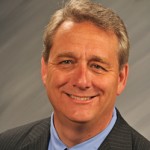Reprinted with permission from Gongwer News Service. Article originally appeared in Gongwer on Friday, October 21, 2011.
Local Government, School Shared Services Discussion Set For Monday
A group of Ohio organizations plan a nonpartisan look at the concept of shared services that one host said Friday he hopes will change perspectives about collaboration.
The event scheduled for Monday will focus on how local governments, schools and higher education institutions can find cost savings through shared services.
Sponsoring the event are the Thomas B. Fordham Institute, the Nord Family Foundation, Ohio Grantmakers Forum, Educational Service Center of Central Ohio, Ohio Education Matters and Public Performance Partners.
“The genesis of this was discussions that I had with Terry Ryan with the Fordham Foundation about the need to talk about and create an event where folks could share productivity and efficiency stories,” Public Performance Partners President and Founder Hugh Quill said in an interview.
“Our focus is really to lead a discussion around how we have to view public capacities differently and not necessarily operate solely within our areas of discipline.”
Mr. Quill, former director of the Ohio Department of Administrative Services, said the government entities should collaborate “to figure out the sweet spots, if you will, where we can save some money in buying things better together.”
Speakers at the three-hour event include, among others, State Auditor Dave Yost and Controlling Board President Randy Cole, who Mr. Quill described as the “tip of the spear for the governor on shared services models.”
Among the possible areas where local entities can realize savings are in combining information technology services, health care, back-office operational and transactional duties, and human resources and payroll services.
“There’s no question that there’s an awful lot of IT capacity out there among a lot of different partners that could be leveraged to assist smaller partners to enhance service and to enhance performance and service for some of those smaller entities,” Mr. Quill said.
One of the speakers, John Weithofer of the Miami Valley Communications Council, created a procurement group of 20 governments that buy things together at a savings for all, Mr. Quill said. “It’s really instructive in terms of kind of how we have to be thinking about how we buy services and commodities in the local government and public space.”
Shared services have been a hot topic at the state level this year as schools and local governments saw state funding reductions. The subject often is tied to the more contentious concept of school district and local government consolidation.
“I think that consolidation is always the toughest conversation, but I think the talking about shared services and looking for ways to work together is a natural stepping stone to that next level, if it’s possible,” Mr. Quill said. “There are all kinds of political obstacles for that, but mainly it’s a sense of community.
“There’s a huge sense of community with schools, no question, and ownership, as there are with local governments, too. I think that that’s the toughest, that’s the nuclear option that we’re dealing with here, but I think that the shared services discussion is the logical first step toward making those conversations more credible and removing some of the barriers.”
Mr. Quill said he hopes the event will start the 150 expected guests – ranging from school superintendents to local government officials – thinking about their entities differently.
“Primarily we want folks to start thinking about public capacities more broadly and not just operating within their comfort zones that have become institutional,” he said. “They need to be thinking about how education space can work with the local government space.
“Also I think that we want folks to start thinking about how difficult and important it is to work on the governance structure. The toughest part of any shared services delivery is making sure all partners are respected and involved in the governance.”
The event will also be rife with success stories. “We want to share some tangible success stories in this space because I think that oftentimes there’s a presumption that these governments have not been sharing, that these schools have not been sharing services and there’s some really significant success stories out there that we should be talking about and modeling,” he said.
“We want folks from all spaces to attend and to contemplate this, county level, city level, township level in addition to local governments. So we expect it to be a pretty significant crowd and one that’s eager to think about the new revenue environment.”
The event is set for 3 to 6 p.m. Monday at the Renaissance Hotel, 50 N. Third St. in Columbus.





